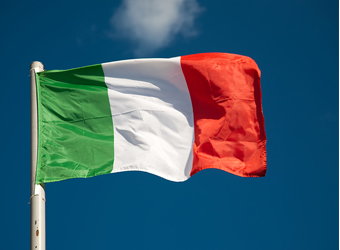With Italian politics still in a stalemate following elections in early March, one lawmaker from the ruling Democratic Party (PD) has ruled out the possibility of his party making alliances with its main rivals.
The country’s parliament is convening for its first session since the March 4 elections on Friday. Lawmakers will be meeting to elect the speakers of the Senate and the Lower House and many market participants will be looking for clues on potential deals struck within the three main political blocs: the anti-establishment Five Star Movement (M5S), the center-right alliance, and the incumbent party Democratic Party (PD).
As none of the parties were able to achieve an absolute majority at the elections, the selection for the speakers could provide some clues as to what discussions have been going on behind closed doors.
Speaking to CNBC, PD lawmaker Stefano Ceccanti ruled out any possible alliance with another party saying that “the PD is not available to form a government with either the Lega or the Five Star Movement because they are against the EU. We are in favor of the European Union.”
Earlier this week the center-right alliance (formed of Lega, Forza Italia and the Brothers of Italy) invited other parties for preliminary discussions. PD and the Five Star Movement, led by Luigi Di Maio, opted out of attending.
The Senate speaker of the house is elected through a voting process that requires a simple majority in a run-off ballot. As such, it is likely that the center-right candidate from Forza Italia, Paolo Romani, is elected due to the alliance gaining more voters than the Five Star Movement back on the March 4 vote.
This leaves the position of speaker of the Lower House. The voting process in that parliamentary chamber is less straightforward, requiring a two-thirds majority in the early stages of the vote before an absolute majority in the final stages of the vote.
Speaking to CNBC, Ceccanti confirmed that the process will be more arduous saying “I think the speaker of the Senate will be elected on Saturday, when the two most voted candidates will face each other. For the speaker of the lower chamber, it could take several days of the next week. Our parliament is divided into three minorities and it will be very difficult to find some sort of agreement between them. A government will be formed in April, if the president of the Republic indicates a solution.”
He added that the PD party is planning on submitting blank votes.
With the Five Star Movement only garnering around 230 seats in the lower chamber, short of the 316 majority threshold, it is thus imperative that Di Maio finds partners during the process. According to Wolfango Piccoli, from analysis firm Teneo Intelligence, the Five Star leader faces a dilemma: partner up with Lega and risk alienating his own party due to conflicting platforms, or run the risk of holding multiple inconclusive voting rounds and not end up with a speaker in the House.
The tail-risk scenario remains one in which Lega and M5S form an alliance. However, Piccoli thinks this option remains unlikely: “Despite some common ground, there are significant differences between them … A deal would entail significant risks for both Di Maio and (Lega leader Matteo) Salvini, including possible defections and a loss of popularity
Once the speakers are selected, a consultation process with President Sergio Matarella can begin. One option, cited by Italian newspaper La Republicca, is where the main two parties Lega and M5S agree to allow for an interim technocratic government that would modify the electoral law and pass the budget, with the view to return to elections back in October.
Investors should have a better idea of each parties’ various stances by early next week.
